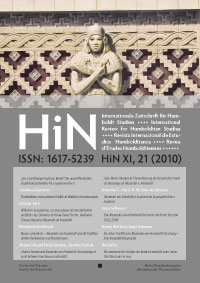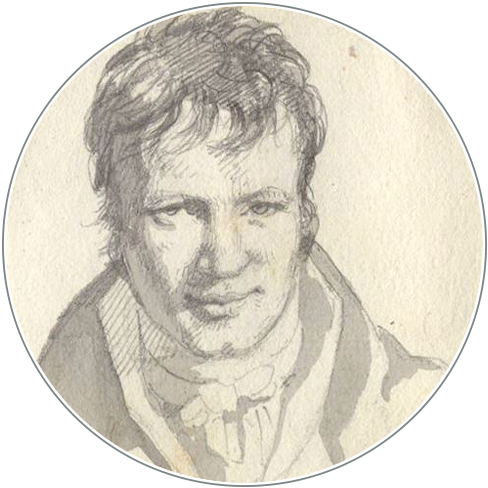Nomos und physis. Alexander von Humboldt und die Tradition antiker Denkweisen und Vorstellungen
DOI:
https://doi.org/10.18443/144Palabras clave:
Aristoteles, Philolaos aus Kroton, Pythagoreer, Wissenschaftsbeziehungen, Wissenschaftsgeschichte, Wissenschaftspraxis, WissenschaftstheorieResumen
Abstract
Alexander von Humboldt’s world view, philosophy of science, and scientific practice were dominated by the notions of measure and harmony. This matter of fact does not leave any doubt about Humboldt’s Pythagoreanism. Already the choice of the title of his Kosmos was led by Pythagorean thought. In 1846 he explicitly wrote to Jacobi that the whole first book is based on the idea that the first Hellenic seeds to all further progresses of mathematical natural knowledge are owed to the Pythagoreans and their emphasis on measure, number, and weight. The paper consists of four parts. The first part deals with Humboldt’s acquaintance with the fragments of the Pythagorean Philolaus. The second part compares the Aristotelean tradition with Philolaus’s informations on Pythagoreanism. The third part relying on the two foregoing parts explains Humboldt’s philosophy of science as a tranformation of Pythagoreanism. The last part discusses three examples taken from Humboldt’s scientific practice in order to illustrate the results deduced up to then.
Descargas
Publicado
Cómo citar
Número
Sección
Licencia
Derechos de autor 2010 Eberhard Knobloch

Esta obra está bajo una licencia internacional Creative Commons Atribución-NoComercial 4.0.
Los derechos de los artículos enviados permanecen en manos de los/as autores/as y se publican bajo una licencia CC (CC BY-NC 4.0). Todos los/as autores/as que publican en HiN aceptan este modelo de licencias.
Es responsabilidad de los/as autores/as obtener la autorización necesaria para la publicación de imágenes.
Los derechos del Diseño de Impresión y el diseño de la revista no son transferibles y no pueden reutilizarse de ningún modo para otras publicaciones sin previa aprobación de HiN.








